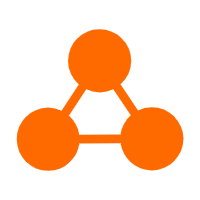By Avanti Kumar
In today's highly dynamic and challenging environment, cloud computing offers the potential gift of levelling the global playing field for everyone, even small companies and entrepreneurs.
This lesson was well-learned during COVID-19-related lockdowns. Companies that adopted cloud computing reaped the rewards due to their abilities to respond with agility, enabling them to control costs or scale up usage.
As detailed in a recent article entitled The Benefits of Using the Cloud over On-Premises in Malaysia, cloud computing comprises on-demand access to computing services – from data storage, software, and servers to big data analytics – outright over the Internet.
Capabilities and capacities enjoyed by larger companies are within reach for small-company resources and budgets. Business owners and entrepreneurs can rely on state-of-the-art data centres with highly trained expert staff running cutting-edge technologies.
As we noted in the article entitled Why Should Malaysian Businesses Adopt Cloud Computing?, Malaysia’s public cloud market alone, which amounts to 3.63% of the total IT spending in the country, has already reached USD643.4 million, according to research site Twimbit. This news is not surprising and makes Malaysia the second-biggest cloud market in the ASEAN after Singapore.
With Malaysia’s intent on advancing its national digital agenda, now is the ideal time to proactively disrupt your company from the ground up.
It was initially the domain of large companies, but now the advantages of cloud computing are accessible to the smallest business. Cloud service providers offer affordable, customised options for businesses of every size.
Cloud computing, in its simplest sense, uses off-premise third-party servers. It also offers a fruitful strategic option for companies to access cutting-edge computing power to cut costs, increase productivity, get on-demand flexibility, and take advantage of global evolution into the 4th Industrial Revolution (4IR).
The cloud also signals a massive opportunity as a secure repository for data and a route to heightened productivity. Some companies, after thorough consideration, are completely opting for cloud computing, whereas others move on a hybrid path with a blend of on-premise servers and cloud-based computing.
Alibaba was one of the active pioneers of developing cloud-native technologies in China. In his presentation on June 26, Ding Yu noted, "As early as 2011, Alibaba started to implement containerisation processes, deploying and implementing cloud-native technologies in industries such as e-commerce, finance, and manufacturing."
After nine years of effort, the accumulated fund of technical knowledge positioned Alibaba Cloud as the sole enterprise in China to be listed in Gartner's Competitive Landscape: Public Cloud Container Services report.
Today, as the top cloud computing vendor in China, Alibaba Cloud already has a comprehensive array of cloud products as a platform that integrates many cutting-edge technologies. The section below cites a few to demonstrate the range and use of technologies:
As noted above, ECS remains the base of cloud computing and provides powerful computing abilities for upper-layer applications. It is also the first stop for enterprise cloud migration.
An excellent example of this is Permodalan National Berhad (PNB), Malaysia's largest fund management firm, which boosted its digitalisation upon choosing Alibaba Cloud as its technology partner. PNB is in the midst of successfully addressing its operational challenges through the utilisation of premium support services and Elastic Compute Services (ECS), which has helped provision high elasticity and maintain network and system efficiencies.
PNB's Chief Technology Officer Muzzaffar Othman commented, "With a clear digital transformation roadmap and technology partners, such as Alibaba Cloud, PNB is determined to stride forward by ensuring operational resilience, high availability, secure digital engagement, and a seamless user experience."
Evolving cloud technologies are building upon various benefits that different cloud models offer.
Looking at these from a business perspective, we see there are four main types of cloud computing: private, public, hybrid, and multi-cloud. There are also three main types of cloud computing services: Infrastructure-as-a-Service (IaaS), Platforms-as-a-Service (PaaS), and Software-as-a-Service (SaaS).
In the article entitled Public, Private, Hybrid Cloud: Which One Is Right for Your Business in Malaysia?, we saw that regardless of the type of cloud model, the benefits of cloud computing are compelling. Top cloud technologies enjoyed by larger corporates are now accessible to smaller businesses. A couple of examples:
A leading e-wallet provider in Malaysia and the product of the joint venture between Touch 'n Go Sdn Bhd and Ant Financial Group, TnG Digital Sdn Bhd, selected the public cloud model following the approval of the Central Bank of Malaysia (BNM) to operate mobile e-wallet services for Malaysians, TnG looked for a technology solution to operate and deliver across four key areas: regulatory frameworks, security, user and partner expectations, and agility and scalability.
Alibaba Cloud's responsive support via DingTalk ensured fast solutions 24/7 and helped TnG meet rigorous regulatory requirements using cloud computing with the latest cloud technologies.
The baseline benefits of cloud computing extend to small businesses and include:
Alibaba DAMO Academy is the global research initiative by Alibaba Group, which provides its forecast of the leading trends that would shape the tech industry in the year ahead. DAMO Academy analysed millions of public papers and patent filings over the past three years and conducted interviews with near 100 scientists to distil the top 10 technology trends for the next two to five years.
Jeff Zhang, the President of DAMO Academy, said, "Over the past century, the evolution of digital technologies has accelerated technological progress and industrial development. The boundary of technologies is extended from the physical world to mixed reality, while more cutting-edge technologies find their way to industrial applications."
"Digital technology plays an important role in powering a green and sustainable future, whether it is applied in industries, such as green data centres and energy-efficient manufacturing, or in day-to-day activities like paperless offices. With technology, we will create a better future."
The top 10 trends (which anchor on a surge of applications running on top of the new computing system) are derived from the trend of heightened cloud-network-device convergence. The rapid development of new network technologies will propel the evolution of cloud computing towards a new computing system of cloud-network-device convergence.
The full report details some of the advances arising from this convergence and the broad application of AI in the research process of applied science and the widespread use of silicon photonic chips in large-scale data centres.
DAMO expects AI to open up a pathway for the integration of renewable energy sources into the power grid, people-centric precision medicine, ground-breaking improvements in the performance and interpretability of privacy-preserving computation, and a new generation of extended reality (XR) glasses.
These advances signal the coming of the Metaverse, which is currently presented as the next generation of the Internet. A Metaverse is essentially a virtual world that runs parallel to our real world. The Metaverse is expected to connect people and objects in the virtual world to reality – resulting in a form of integration of the digital world and the physical world, digital life and social life, digital economy and real-world economy, digital assets and physical assets, and digital identity and real identity.
Blockchain-as-a-Service (BaaS) is another technology in the spotlight. Alibaba Cloud's BaaS is an enterprise-level platform service built on cutting-edge blockchain technologies. This will help businesses build a secure and stable blockchain environment and help save the costs of operations and maintenance and facilitate business development better.
Alibaba Cloud has four core advantages when it comes to cloud-native technology and applications by having:
Recently, Gartner released its latest global network market share report entitled Market Share: Enterprise Network Equipment by Market Segment, Worldwide, 1Q19. Alibaba Cloud ranked fifth as the only Asian enterprise included in the report.
A further testament is the Malaysian government's appointment of Alibaba Cloud, the digital technology and intelligence backbone of Alibaba Group, as a major cloud service provider (CSP) to help strengthen the country's acceleration of its cloud-first strategy.
Moving forward, Alibaba Cloud is continuing to push ahead to change the future of cloud computing technologies.
In a speech given during a summit, Alibaba Cloud's President Zhang Jianfen spoke of the company's rebranding as Alibaba Cloud Intelligence and its 10-year journey, noting, "Today, Alibaba Cloud is investing through increased research into new-generation technologies and further partnerships in an increasing number of industries to enrich and empower these industries. Both of these moves reflect Alibaba Cloud's goals for the future. Alibaba Cloud has been working on its core capabilities, hoping to increasingly bring its underlying infrastructure to the cloud, reinforce and strengthen its Internet technologies, and create a data- and intelligence-focused platform."
Forward looking business leaders can take advantage of tomorrow's evolving technologies today. For example, there are five cloud technologies of immediate use to businesses of all sizes detailed in the blog entitled 5 Cloud Technologies Your Start-Up Needs to Succeed.
In the blog entitled, The Benefits of Using the Cloud over On-Premises in Malaysia, we saw how Malaysia's prioritisation of digitalisation is encouraging business leaders and individuals to review the best use of digital tools and services – whether on-premise or offsite through various cloud models and collaboration with service partners.
Start with a complete audit of the current state of your existing IT infrastructure and how your team works and collaborates. Also, review what data your business stores currently and how the cloud can enhance your ability to store and unlock the value in your data. Then, shortlist the data you want to move to the cloud first. This is an incremental journey that should be completed with your technology partner.
How to Set up and Configure a Sharded Architecture ApsaraDB for MongoDB Instance

1,331 posts | 464 followers
FollowAlibaba Cloud Community - July 18, 2022
Alibaba Cloud Community - April 13, 2022
Alibaba Cloud Community - December 8, 2021
Alibaba Clouder - May 28, 2018
Alibaba Clouder - August 22, 2019
Alibaba Cloud Community - April 1, 2022

1,331 posts | 464 followers
Follow Server Load Balancer
Server Load Balancer
Respond to sudden traffic spikes and minimize response time with Server Load Balancer
Learn More Simple Application Server
Simple Application Server
Cloud-based and lightweight servers that are easy to set up and manage
Learn More ECS(Elastic Compute Service)
ECS(Elastic Compute Service)
Elastic and secure virtual cloud servers to cater all your cloud hosting needs.
Learn More E-Commerce Solution
E-Commerce Solution
Alibaba Cloud e-commerce solutions offer a suite of cloud computing and big data services.
Learn MoreMore Posts by Alibaba Cloud Community
developerw892 April 1, 2022 at 12:56 pm
It's intriguing. I like your endeavors. click here